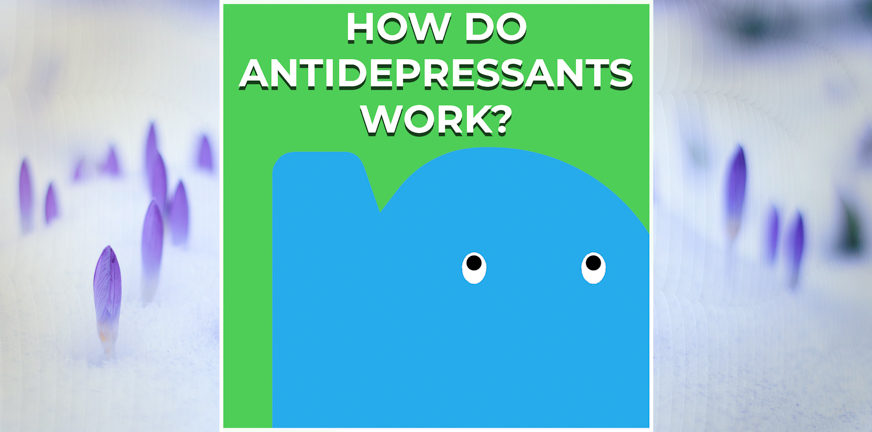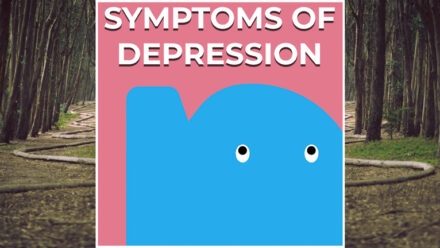
Inside your brain, signals are sent back and forth from one part of your brain to another by many different chemicals (neurotransmitters). Two of these neurotransmitters are thought to be important for regulating your mood and emotions: serotonin and noradrenaline (also called norepinephrine).
However, to what degree depression is related to brain neurochemistry is really unknown and to say that depression is due to a neurochemical disbalance is, scientific speaking, nonsense. Nevertheless, antidepressants may impact depressive symptoms by regulating the levels and activity of these neurotransmitters.
How antidepressants work
Antidepressants can impact the level of serotonin and/or noradrenaline (norepinephrine) in the brain, by making these brain chemicals more active as “messenger” or remain in the brain for a longer time. Some have hypothesized that this may impact depressive symptoms.
Why antidepressants seem to work in some people is not fully understood. Everybody’s brain operates differently. Everybody’s depression is differently. Maybe antidepressants simply work because they tend to cause a degree of emotional numbing – so that the person has less intense depressed feelings. However, because each type of antidepressant works in a slightly different way, it is difficult to predict which antidepressant is (most) effective for which person. Sometimes you simply have to try a few different kinds to find out which one works for you.
Antidepressants do not work immediately
It can take several weeks before you notice improvement after starting with antidepressants. Maybe your brain needs time to adapt and respond to the medicines. If you still do not notice any difference 4 to 6 weeks into the treatment, get in touch with your doctor. Perhaps a different dosage or another antidepressant might help. Or psychotherapy may be better. It is even possible that your problems first get worse when you start taking an antidepressant. This should improve after a week or two. If it does not, or when your problems are only getting worse, then also get in touch with your doctor. You should avoid being in the position of taking an antidepressant (chronically) that does not make much of a difference.
How long should you use antidepressants?
How long you need to take antidepressants is hard to say. That depends on a number of factors, like whether you have been depressed before, how long you are feeling depressed and any permanent risk factors in your environment and lifestyle. Usually, it is thought best to take the medication for at least six months into your recovery. This is to prevent your problems from coming back. Some people are on antidepressants for years. That’s mostly to prevent another depression, so the use is mostly out of precaution. However, if it wise to use antidepressants for years is an open question. Scientists are worried that very long term antidepressant use may make the person more vulnerable to depression. Please take into account that for some people it is very difficult to stop with their antidepressant due to withdrawal syndromes. Venlafaxine and paroxetine are two antidepressants that probably should be avoided as they are associated with a higher risk of withdrawal syndrome when trying to stop. Please ask your doctor if he/she plans to prescribe these medications.
It is important to regularly evaluate your medication use with your doctor, particularly if you use them for a long time and want to stop. Please note that not all doctors are aware of the possibility of withdrawal syndrome when trying to stop antidepressants. And please not that some doctors are reluctant to try to taper medications because they are risk-aversive. Risk is an essential part of recovery. Patients should feel empowered to engage in experiments with their treatments.
Bipolar disorder and antidepressants
If someone has a history of manic depression (i.e. bipolar disorder), they should be careful in using antidepressants. Because when an antidepressant is given without a mood stabiliser (such as lithium), this could trigger a manic episode.
Extra information:
More information on specific antidepressants can be found at Medlineplus.gov (in English and Spanish).




